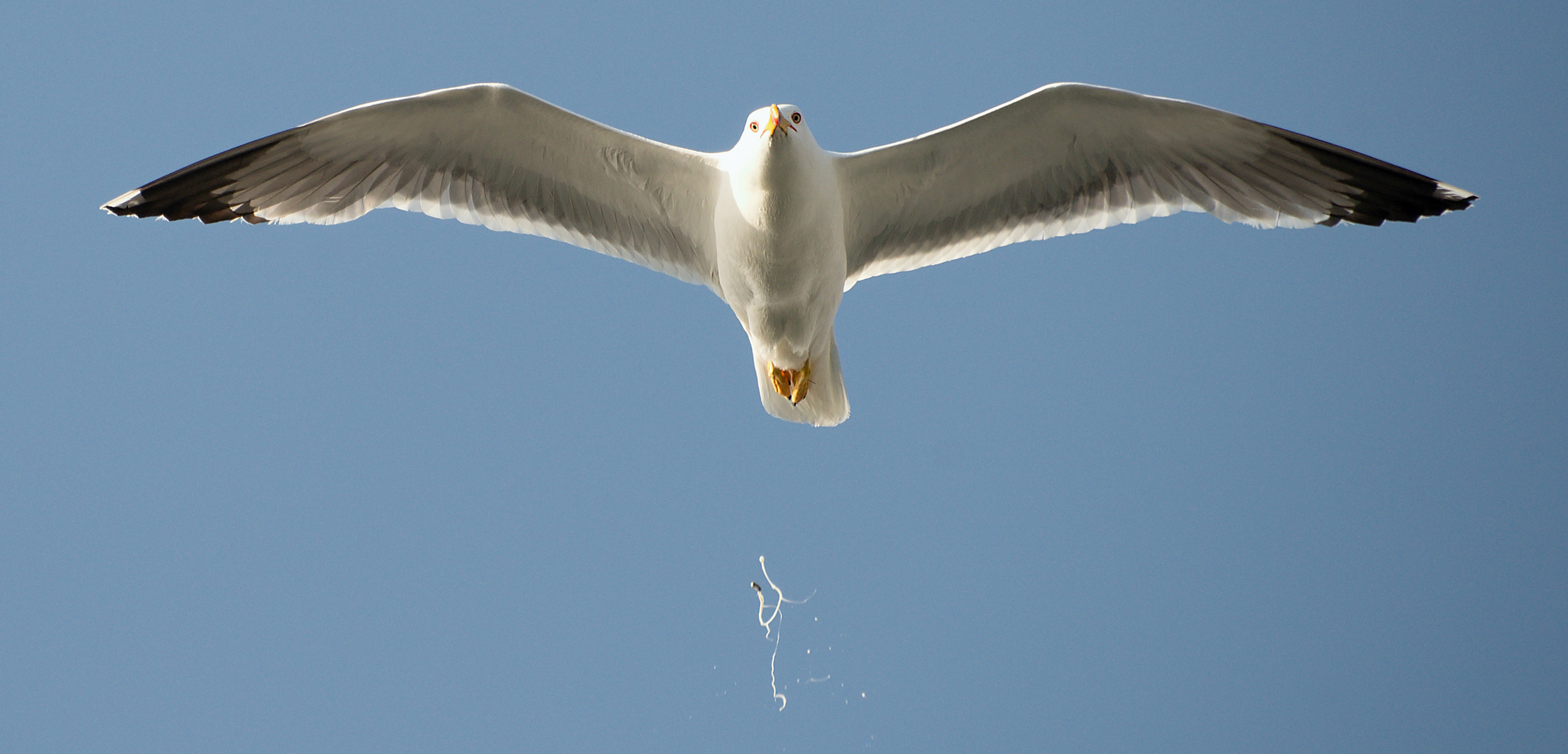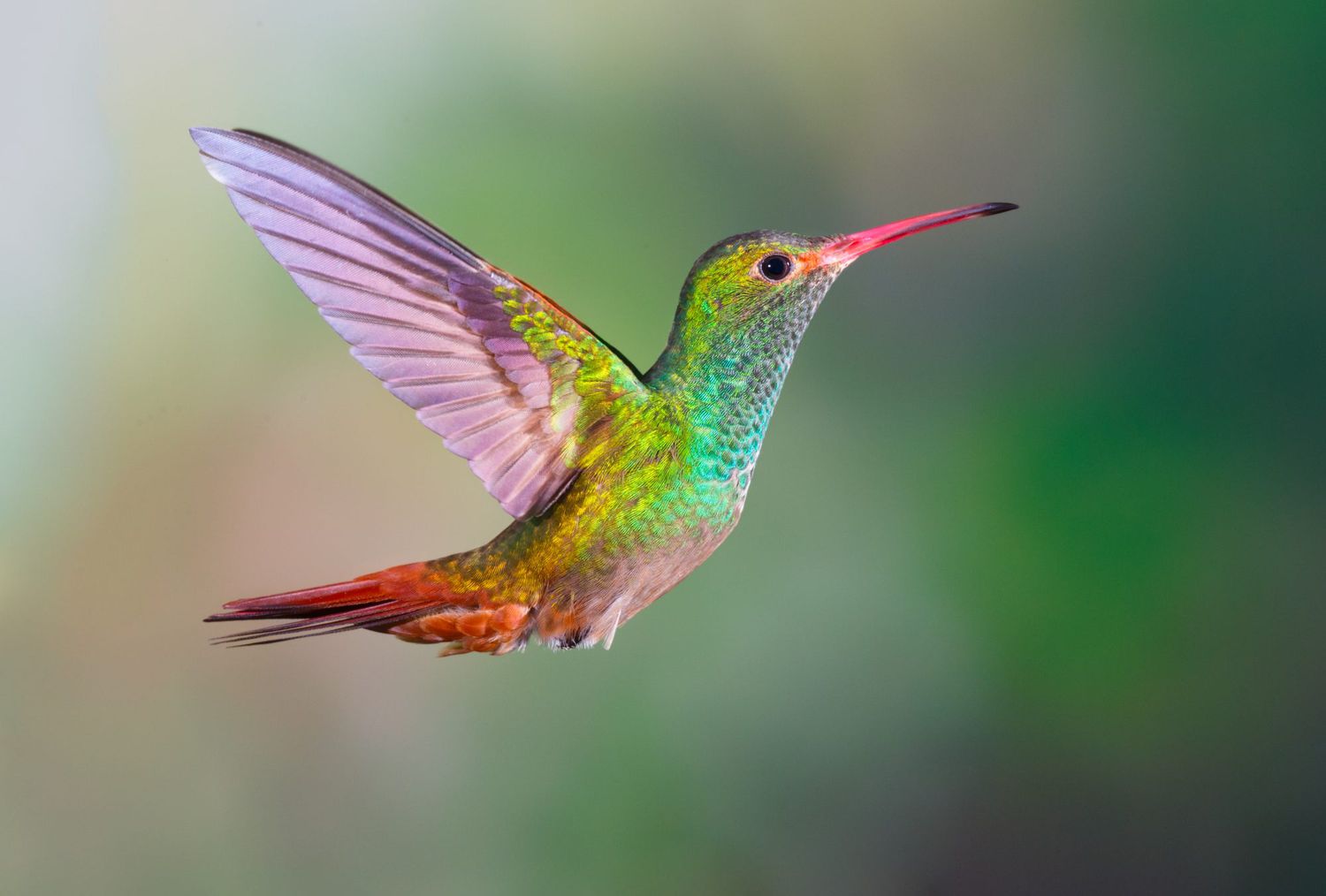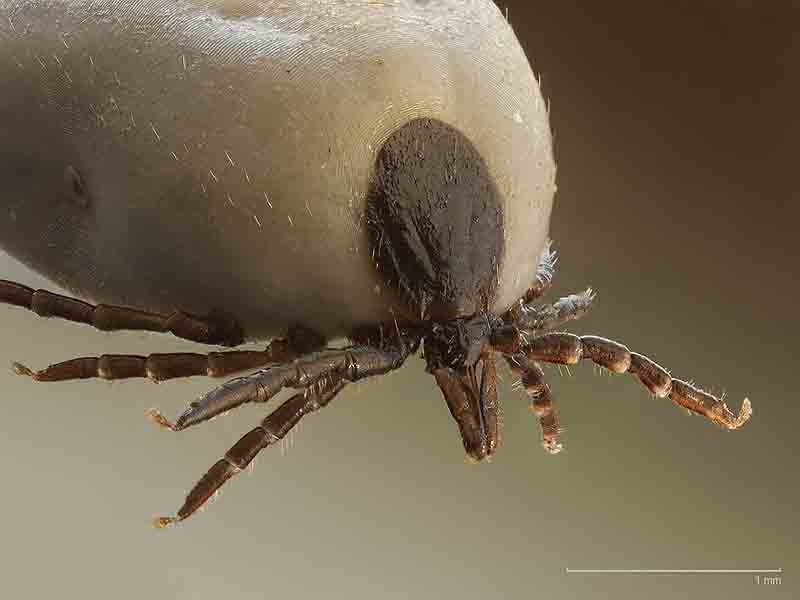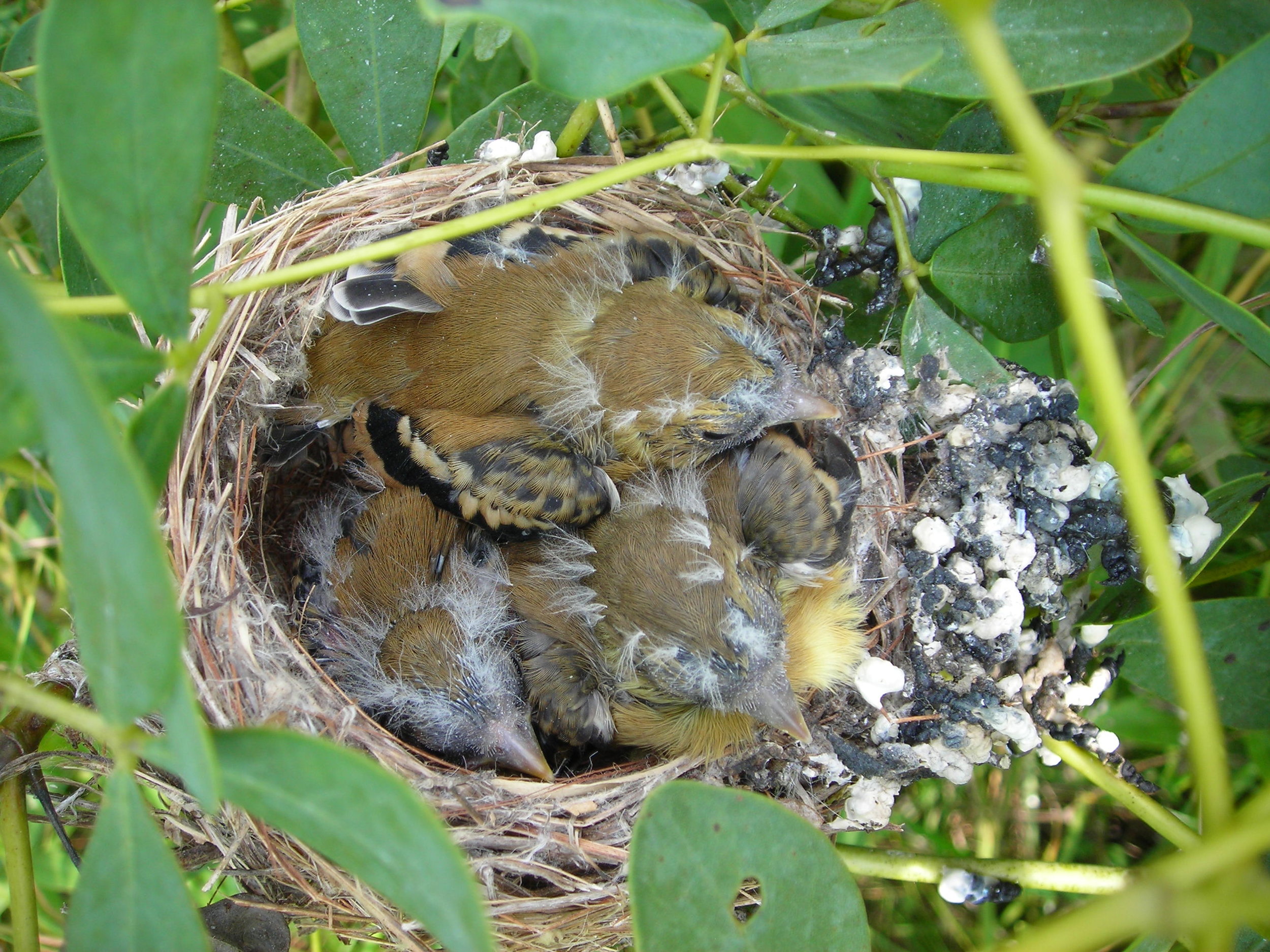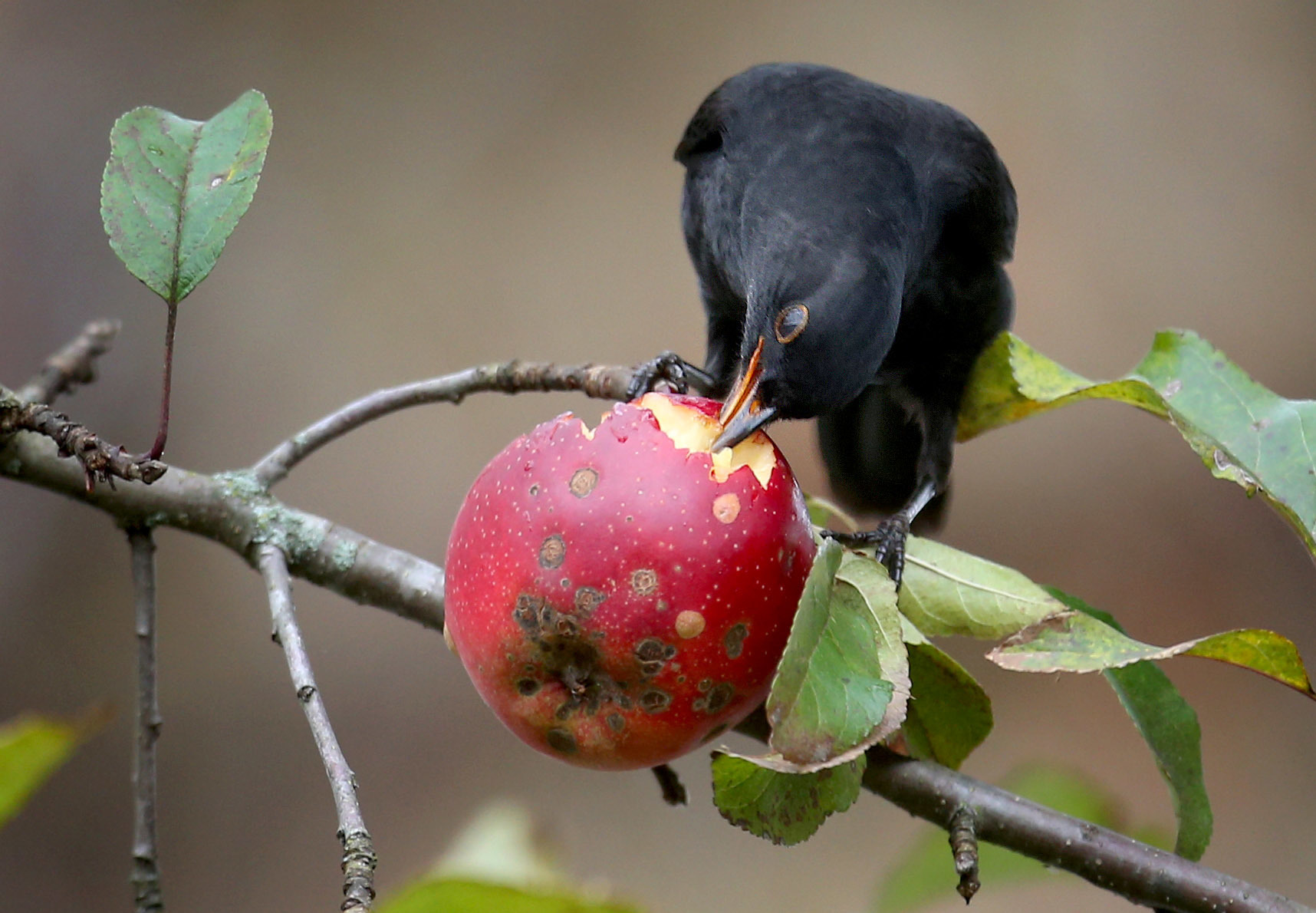Why Do Birds Eat Their Poop - Unraveling Nature's Peculiar Habit
In this article, we will delve into the intriguing world of avian biology and behavior to understand why do birds eat their poop and explore other species.
Author:Liam JonesReviewer:Maya ReyesOct 06, 202313.5K Shares677K Views
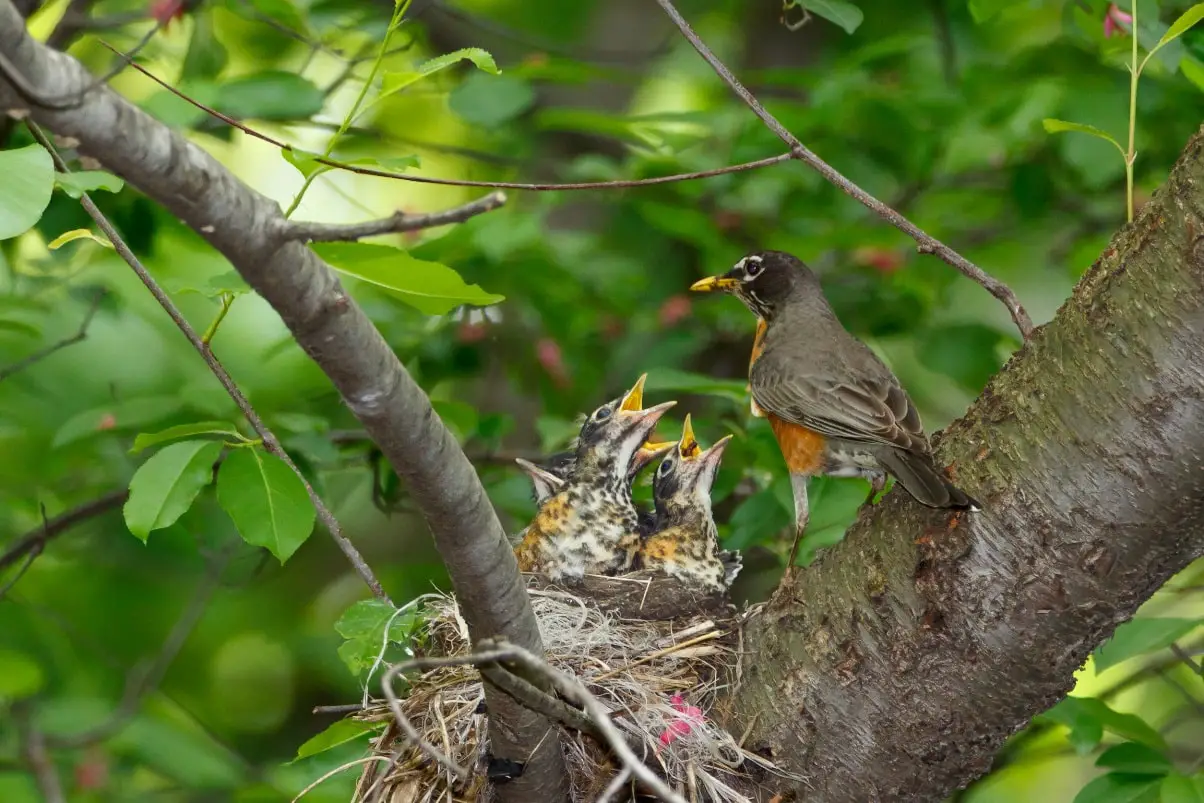
Birds, those enchanting creatures that grace our skies with their colorful plumage and melodious songs, are not without their peculiar habits. One such behavior that might leave us perplexed is their tendency to eat their own poop. In this article, we will delve into the intriguing world of avian biology and behavior to understand why do birds eat their poopand explore other species.
The Role Of Coprophagia
In the intricate ecosystem of avian biology, the digestive system plays a pivotal role not just in processing food but also in maintaining the delicate balance of gut microbiota. Birds, like all creatures, host a diverse and complex community of microorganisms in their digestive tracts. These microbes are not mere passengers; they are essential partners, aiding in digestion and ensuring the overall health and well-being of the bird. One fascinating behavior observed in birds, known as coprophagia, sheds light on the ingenious mechanisms they employ to regulate their gut microbiota.
The Microbial Symphony In Avian Digestion
Birds' digestive systems are finely tuned orchestras of various microorganisms working in harmony. These microbes assist in breaking down complex food components, aiding in the absorption of essential nutrients. The delicate balance of this microbial community is crucial for the bird's overall health, affecting digestion, immune function, and even behavior.
Efficient Digestion And Overall Well-being
Maintaining a healthy gut microbiota is not just about digestion; it has far-reaching implications for the bird's overall well-being. A balanced and diverse gut microbiota is essential for bolstering the bird's immune system, protecting it against harmful pathogens. Additionally, a well-regulated microbial community contributes to the bird's energy metabolism, influencing its behavior, growth, and reproduction.
Nature's Adaptive Solution
The practice of coprophagia in birds exemplifies nature's adaptive brilliance. This behavior, seemingly peculiar to us, is a testament to the efficiency and resourcefulness of evolutionary mechanisms. By recycling essential microorganisms through coprophagia, birds ensure their survival in diverse environments, where food sources and microbial populations can be unpredictable.
Digestive Efficiency In Birds - Unraveling The Marvels Of Coprophagy
In the intricate world of avian biology, efficiency is not just a luxury but a necessity for survival. Birds, with their high metabolic rates and constant need for energy, have evolved remarkably efficient digestive systems. One of the most fascinating strategies they employ to ensure they extract every ounce of nutrition from their food is coprophagy, a behavior that might seem peculiar to us but is a testament to their adaptive brilliance.
The Digestive Marvel Of Birds
Birds boast a highly specialized digestive system, honed over millions of years of evolution. Their journey begins in the beak, where food is broken down mechanically before reaching the stomach. Once in the stomach, powerful acids and digestive enzymes start the process of breaking down complex carbohydrates, proteins, and fats. The partially digested food then moves to the small intestine, where the absorption of nutrients takes place.
The Nutritional Rebirth
However, the journey of nutrients doesn't end here. Not all essential elements are absorbed fully during the first pass through the digestive system. Herein lies the ingenious solution: coprophagy. By consuming their own droppings, birds re-ingest these nutrient-rich particles, giving their digestive system a second chance to extract valuable nutrients. This process acts as a form of internal recycling, allowing birds to maximize their nutritional intake.
Optimizing Energy Utilization
Coprophagy is not just a quirky behavior; it's a strategic move in the game of energy optimization. By recycling specific nutrients, birds can bolster their energy reserves, enabling them to meet the demands of flight, migration, foraging, and reproduction effectively. In essence, coprophagy is a crucial aspect of their energy management, ensuring that no precious resource goes to waste.
A Testament To Nature's Ingenuity
The practice of coprophagy in birds stands as a testament to nature's ingenuity. It showcases the intricate ways in which living organisms have adapted to their environments, optimizing every process for maximum efficiency. From the complexities of digestion to the nuances of nutrient absorption, coprophagy highlights the resourcefulness ingrained in the very fabric of avian biology.
Keeping The Nest Clean - The Fascinating Role Of Fecal Sacs
In the intricate world of avian parenting, ensuring the cleanliness of the nest is paramount to the survival and well-being of the young ones. One intriguing adaptation that many bird species have developed to maintain nest hygiene is the use of fecal sacs, a behavior akin to nature's own diapering system.
The Fecal Sac - Nature's Diaper
A fecal sac, as described by experts like Murphy, functions much like a diaper for birds. This sac is a self-contained structure that envelops the bird's waste, providing an easy way for parents to pick up feces and swiftly remove them from the nest. In essence, it's a clever solution nature has devised to manage the waste produced by young birds. Without this efficient system, the nest could quickly become a breeding ground for bacteria and parasites, posing a significant threat to the vulnerable nestlings.
Preventing Odor And Decomposition
One of the primary advantages of fecal sacs is their ability to prevent unpleasant odors and decomposition within the nest. If left untreated, feces can emit strong smells and attract unwanted attention from predators or scavengers. By encapsulating the waste in a sac, birds effectively eliminate the risk of foul odors, ensuring that their nest remains inconspicuous and safe from potential threats.
Guarding Against Harmful Microorganisms
Research conducted by experts like Ibáñez-Álamo sheds light on another crucial aspect of fecal sacs: their role in safeguarding the health of the parents and nestlings. The sac serves as a physical barrier, isolating the potentially dangerous bacteria and microorganisms present in the feces. By containing waste in these sacs, birds minimize the risk of infections that could harm the inhabitants of the nest. This protective mechanism not only ensures the well-being of the young birds but also contributes to the overall success of the species by enhancing the chances of survival for each brood.
A Testimony To Nature's Ingenuity
The use of fecal sacs by birds highlights the remarkable ingenuity of nature in addressing the challenges of parenthood. This natural diapering system not only maintains nest cleanliness but also plays a vital role in the health and safety of avian families. It is a testament to the evolutionary adaptations that have allowed birds to thrive in diverse environments, showcasing the incredible ways in which animals continue to amaze us with their resourcefulness.
Recycling A Nutritional Snack - Why Do Birds Eat Their Poop
In the intricate tapestry of the avian world, even waste management becomes a vital aspect of survival. One of the remarkable adaptations observed in certain bird species is coprophagia, the consumption of fecal sacs, which might seem peculiar to us but holds significant evolutionary importance.
The Nutritional Treasure Within Fecal Sac
For birds, especially during their early stages of life, extracting every bit of nutrition from their food is crucial for growth and development. Nestling poop, enclosed within fecal sacs, contains undigested remnants of the food they consume. As explained by experts like Ibáñez-Álamo, these fecal sacs serve as a nutritional treasure trove. Even after the nestlings have extracted as many nutrients as they can from their food, there are still valuable energy sources and nutrients left within these sacs.
An Evolutionary Advantage
The practice of coprophagia in birds has been shaped by evolution. In environments where food sources are unpredictable or scarce, every ounce of nutrition matters. By consuming fecal sacs, adult birds can reclaim some of the nutrients lost during the digestion process, ensuring that nothing goes to waste. This ingenious strategy not only maximizes the efficiency of the food chain but also offers a survival advantage to both parents and their offspring.
Parental Sacrifice For Offspring’s Well-being
For parent birds, consuming fecal sacs is not merely a matter of convenience; it is an act of selflessness. By ingesting these sacs, parents recycle the valuable nutrients back into their bodies. In doing so, they ensure that they are well-nourished, enabling them to provide optimal care and sustenance to their young ones. This sacrifice underscores the lengths to which parental birds go to ensure the well-being and future success of their offspring.
A Glimpse Into Nature's Efficiency
The practice of coprophagia in birds provides a fascinating glimpse into the efficiency of nature's processes. It exemplifies the intricate balance and resourcefulness inherent in the natural world. From the seemingly mundane act of consuming fecal sacs, we can glean insights into the ingenious ways in which life perpetuates itself, even in the face of challenges.
The Curious Phenomenon - Sweet Poop In Birds
In the intriguing realm of avian behavior, there exists a peculiar phenomenon that might puzzle even the most experienced bird enthusiasts: the concept of sweet-smelling bird poop. While it might sound unusual, this phenomenon has a logical explanation rooted in the intricacies of a bird's senses and instincts.
The Sweet Aroma Connection
Birds, like many creatures, have a highly sensitive sense of smell. When certain substances, such as sugar, are added to their food or water, it can alter the composition of their waste, imparting it with a sweet aroma. This sweet scent, detected by the bird's keen olfactory senses, can pique their curiosity and trigger their interest in the feces they produce.
Understanding The Link
In some cases, bird owners add sugar to their pet's water to prevent hypoglycemia, a condition characterized by low blood sugar levels. The sweetened water can influence the odor and taste of the bird's droppings. When birds encounter this altered scent, their instinctual behavior might lead them to investigate further, sometimes even consuming their own poop.
The Triggering Effect
Once a bird poops and detects the unusual sweet smell, their natural instinct to investigate and explore their surroundings can kick in. This curiosity can extend to their own droppings, especially if the scent is different from what they are accustomed to. The unique aroma might trigger a response, causing the bird to engage in coprophagia, the consumption of their own feces.
Managing Bird Behavior
Understanding this behavior is essential for bird owners. While it might be unsettling, it's crucial to ensure that birds are provided with a balanced and nutritious diet, minimizing the need for additional additives like sugar. By offering a well-rounded diet tailored to their specific species, bird owners can support their pet's health and reduce the chances of unusual behaviors related to altered odors or tastes in their droppings.
Inherited Coprophagy
In the timeless dance of evolution, animals, particularly birds, have developed an astonishing array of behaviors that contribute to their survival and reproductive success. Among these behaviors, coprophagy, or the consumption of feces, stands out as an intriguing inherited trait that has been passed down through generations. This seemingly peculiar habit carries with it a wealth of significance, offering a window into the intricate mechanisms of adaptation and resilience within the animal kingdom.
A Legacy From Ancestors
Coprophagy, as a behavior, is not a recent phenomenon; it has deep roots in the evolutionary history of various bird species. Over countless generations, certain birds have inherited this behavior from their ancestors. What began as a survival strategy in response to specific environmental challenges has persisted over time, becoming an integral part of their biology. This inheritance from their forebears highlights the potency of successful adaptations, illustrating how behaviors ingrained in the past continue to shape the lives of contemporary avian species.
The Significance Of Inheritance
The inheritance of coprophagy is a testament to the remarkable ways in which animals adapt to their environments. As environments change, animals that exhibit behaviors beneficial for their survival are more likely to thrive and reproduce.
Over generations, these advantageous traits become embedded in the genetic code, ensuring the perpetuation of adaptive behaviors. In the case of coprophagy, the ability to efficiently recycle nutrients provides a substantial advantage, especially in ecosystems where resources are scarce or irregularly available.
Ensuring Survival And Reproductive Success
The persistence of coprophagy across generations is a powerful demonstration of nature's relentless pursuit of survival and reproductive success.
Through this inherited behavior, birds can maximize their nutritional intake, optimize their energy utilization, and enhance their chances of successfully raising offspring. In challenging environments where food sources are limited or unpredictable, the ability to extract every possible nutrient from available resources can make the difference between life and death.
A Glimpse Into Nature's Adaptive Brilliance
In the grand tapestry of life, inherited coprophagy serves as a shining example of nature's adaptive brilliance. It underscores the incredible diversity of strategies that animals employ to navigate the complexities of their environments.
As we observe these inherited behaviors in birds, we gain profound insights into the tenacity of life, the resilience of species, and the enduring legacy of successful adaptations.
The Evolutionary Triumph Of Coprophagy - A Testament To Adaptation
In the vast tapestry of nature, adaptation is the key to survival. Nowhere is this more evident than in the intriguing behavior of coprophagy, the consumption of one's own waste, observed in certain bird species.
This seemingly unusual habit, far from being a mere quirk, bestows these birds with a significant evolutionary advantage, enabling them to flourish in environments where food is scarce or irregular. It's a compelling story of nature's ingenuity and the adaptability of life in the face of challenging ecological conditions.
Thriving In Harsh Environments
In the wild, securing a consistent food supply is a perpetual challenge. For certain bird species, especially those residing in habitats with limited resources, the ability to recycle nutrients through coprophagy is a game-changing advantage. By consuming their own waste, these birds effectively extract every available nutrient, turning what might seem like waste into a valuable resource. This unique ability allows them to thrive even in the harshest of ecological niches, where other species might struggle or perish due to food scarcity.
A Sustainable Source Of Nutrition
In environments where food sources fluctuate or are unpredictable, the ability to sustain oneself through recycling nutrients provides a crucial lifeline. Coprophagy ensures that no essential nutrient is wasted. By re-ingesting their feces, birds can obtain a second chance at extracting vital energy sources, proteins, and micronutrients from their food. This sustainable source of nutrition significantly enhances their chances of survival, allowing them to endure periods of scarcity and thrive when resources are limited.
Nature’s Adaptive Masterstroke
Coprophagy is a testament to nature’s remarkable adaptability and efficiency. It exemplifies how organisms, over generations, have evolved to make the most out of their surroundings, even in the face of adversity.
The ability to recycle nutrients showcases the resourcefulness ingrained in the very fabric of life. It underscores the profound impact of small, seemingly peculiar behaviors in the grand narrative of evolutionary success.
A Lesson In Adaptation
The evolutionary advantage conferred by coprophagy serves as a valuable lesson for us, highlighting the importance of adaptability and sustainability. In a world where environmental challenges are becoming increasingly prevalent, the ability to make the most of available resources is a skill worth emulating.
Nature’s ingenious solutions, such as coprophagy, remind us of the beauty of adaptation and the incredible ways in which life persists, defying the odds and finding innovative ways to thrive.
People Also Ask
Why Did My Bird Eat Its Poop?
- Natural Behavior:Coprophagy, or the consumption of their own poop, is a natural behavior observed in many bird species.
- Maximizing Nutritional Intake:Birds engage in coprophagy to extract undigested nutrients from their droppings, ensuring they get the most out of their food.
- Nest Hygiene:In the wild, coprophagy helps maintain nest hygiene by preventing the buildup of feces, which could attract predators due to scent.
- Evolutionary Instincts:This behavior is rooted in evolutionary instincts, showcasing how birds have adapted to utilize available resources efficiently.
Is It Safe For Birds To Eat Their Own Poop?
In general, coprophagy is a natural behavior and is usually safe for birds. However, it's essential to monitor your bird's health and behavior. If this behavior is sudden, excessive, or accompanied by other signs of illness, it could indicate an underlying health issue.
In such cases, it's crucial to consult an avian veterinarian to rule out any health problems. Additionally, if your bird is on a well-balanced diet and has a clean living environment, it may reduce the tendency to engage in coprophagy.
How Do You Stop Birds From Eating Their Poop?
While coprophagy is a natural behavior and challenging to completely eliminate, there are a few strategies you can try to minimize it:
- Dietary Adjustments:Ensure your bird is on a well-balanced, nutritious diet. Sometimes, dietary deficiencies can trigger coprophagy. Consult with an avian veterinarian to ensure your bird's diet meets its nutritional needs.
- Clean Living Environment:Maintain a clean cage and provide fresh food and water daily. A clean environment might reduce the chances of coprophagy, as birds are less likely to be attracted to their droppings.
- Behavioral Enrichment:Provide your bird with plenty of mental and physical stimulation. Boredom or stress can lead to coprophagy, so offering toys, social interaction, and regular out-of-cage time can help reduce stress-related behaviors.
- Consult a Veterinarian:If coprophagy persists or increases significantly, it's crucial to consult an avian veterinarian. They can conduct a thorough examination to rule out any underlying health issues and offer tailored advice based on your bird's specific situation.
Conclusion
While the idea of birds eating their own poop might seem repulsive to us, it is a testament to the intricate web of adaptations and behaviors that characterize the natural world. Understanding these peculiar habits not only enriches our knowledge of avian biology but also highlights the astonishing ways in which creatures, big and small, navigate the complexities of their environments.
Next time you observe a bird engaging in this seemingly bizarre behavior, remember that it is a testament to the wonders of evolution and nature's ingenious solutions to life's challenges. Embracing these marvels of the animal kingdom allows us to appreciate the beauty and complexity of life in all its forms.
Jump to
The Role Of Coprophagia
Digestive Efficiency In Birds - Unraveling The Marvels Of Coprophagy
Keeping The Nest Clean - The Fascinating Role Of Fecal Sacs
Recycling A Nutritional Snack - Why Do Birds Eat Their Poop
The Curious Phenomenon - Sweet Poop In Birds
Inherited Coprophagy
The Evolutionary Triumph Of Coprophagy - A Testament To Adaptation
People Also Ask
Conclusion

Liam Jones
Author
Liam Jones has made it his mission to prove that adventure doesn’t need a hefty budget. Having traveled to over 40 countries, he specializes in finding affordable ways to experience the world, from the best street food in Bangkok to hidden gems in Lisbon.
Liam’s travel tips have reached thousands of readers, empowering them to see the world on a shoestring budget without sacrificing quality. With a deep passion for local cultures, he continues to share his travel hacks, ensuring adventure remains accessible to all.

Maya Reyes
Reviewer
Maya Reyes’s wanderlust was sparked in the temples of Luang Prabang, where the scent of lemongrass and the chants of monks revealed the transformative power of travel.
Since then, her journey has been defined by cultural immersion and authentic connections. From learning batik in Indonesia to sharing meals with nomadic families in Mongolia, Maya seeks experiences that highlight the human stories behind each destination.
Travel for her is a way to weave her narrative into the world’s cultural tapestry, creating bridges across diverse ways of life. Maya has traveled to 15 countries and shares her insights through writing and storytelling.
Latest Articles
Popular Articles
